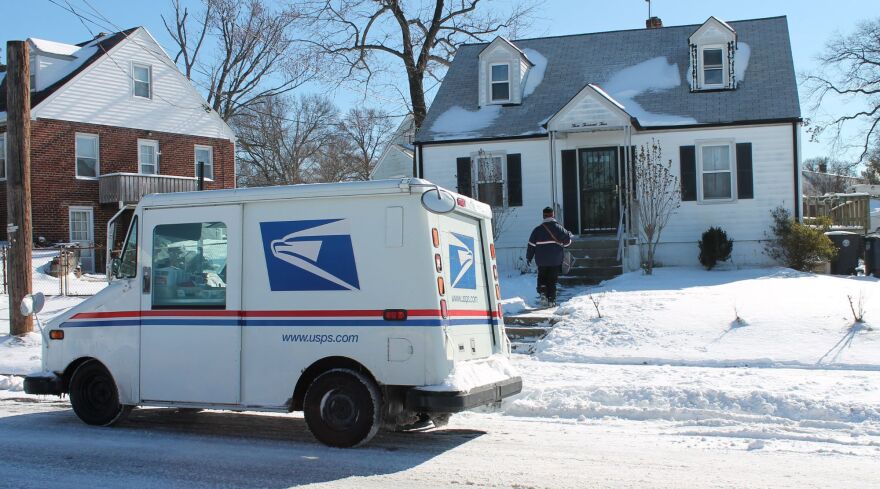Wyoming’s federal delegation is backing a bipartisan bill that would block recent changes to U.S. Postal Service (USPS) mail processing, particularly in rural America. The state’s only two major processing and distribution centers, located in Casper and Cheyenne, are being downsized in an effort to improve delivery efficiency in the region.
The USPS currently loses billions of dollars every year and struggles with staffing shortages and other inefficiencies. At a recent U.S. Senate hearing, Postmaster General Louis DeJoy said that maintaining the financial status quo is not an option.
“The road to success will not be a straight and easy path. Rather, it will be a series of accomplishments, struggles and recoveries that will be uncomfortable at times,” he said. “This is the plan we're going with. We're moving forward and it is in fact having an impact. And it will make the Postal Service better.”
What these changes mean practically is that all mail sent from Wyoming will need to go out of state, usually to Billings, Mont. or Denver, Colo., before it’s processed and sent to a final destination. This is true even for intrastate letters and packages – meaning a birthday card sent between two Cheyenne neighbors will need to cross state lines twice.
The Postal Service maintains that this system is actually more efficient. The majority of letters and packages in Casper and Cheyenne are leaving the community and the USPS’s “service standard” will not be changing. Currently, that standard is two delivery days for first-class cross-town mail and three days for most regional or cross-state deliveries.
But Bob Jacknitsky, state representative for the National Postal Mail Handlers Union Local 321, said that this plan will hurt Wyoming, particularly in rural areas because of the extensive travel needed for each parcel. A letter between Laramie and Cody, for instance, could have to make pit stops in Cheyenne, Denver, Billings and Casper.
“What this means is at LEAST one day will be added to the delivery time and Cheyenne, the Capital City, will no longer have a postmark on the letters. It will be Denver, CO,” Jacknitsky said in a written statement. “With all these plans in place, the customers will be fortunate if their mail will be delivered even within the expanded ‘delivery standards.’ This includes time sensitive materials such as medications.”
The USPS is implementing similar changes across the country, including in Reno, Nev., Grand Junction, Colo. and Missoula, Mont. Spokespeople for the service say that these plans won’t result in layoffs and will allow for maintenance and efficiency investments in local sorting facilities. In Casper, for instance, the service estimates this change could save about $3 million annually – enough to greenlight more than $5 million in renovations to the facility.
But Wyoming’s federal politicians say that local mail needs to stay in-state. Their bill would require that every state has at least one processing and distribution center, which they argue will save jobs and maintain standards in rural communities. Jacknitsky said his union supports these efforts.
“They realize that this plan is unsustainable in its current form and it will be specifically brutal to the rural communities, [of] which Wyoming is approximately 90%. They understand that DeJoy's one size fits all mentality doesn't fit Wyoming,” he wrote.
State officials in Wyoming oppose DeJoy’s plans as well. Secretary of State Chuck Gray said in a statement that he’s concerned about delays for mail-in ballots and other potential disruptions to the voting process in upcoming elections.








